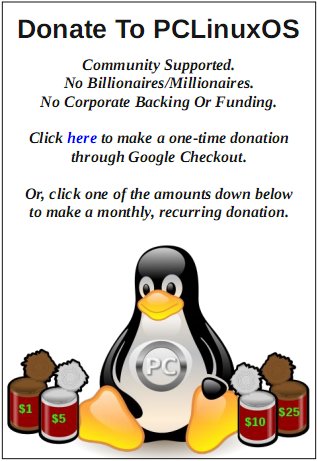| Previous
Page |
PCLinuxOS
Magazine |
PCLinuxOS |
Article List |
Disclaimer |
Next Page |
The Death Bell Tolls For Google+ |
|
by Paul Arnote (parnote) Another month, another Google service dies. On October 12, 2018, Google announced that Google+ will close down at the end of August, 2019. This announcement was in tandem with the report of a bug that exposed Google+ users private information. The bug was discovered in March, 2018, but Google kept it quiet in the wake of the Cambridge Analytica and Facebook shenanigans, fearful of being drawn into a U.S. Congressional investigation over the matter. Even now, Google is being queried from congressional members about the matter, and may still have to appear before lawmakers to explain the vulnerability. It is estimated that over 500,000 Google+ users were potentially affected.  Ultimately, it was discovered that the bug went all the way back to 2015, by some reports. So, instead of fixing the bug, Google made the decision to close Google+ down. Google's habit of always changing course, screwing with the interface for no apparent or good reason (Google LOVES to do that to most of their services), coupled with a diminishing use and even greater diminished acceptance, had long ago sealed Google+'s fate. Indeed, over the past year or so, Google+ has seemed a bit like a ghost town, save the few determined folks and groups that made the decision to weather the storm. In the interest of disclosure, I have been a Google+ user since its inception, and will probably remain so until the bitter end. The PCLinuxOS Magazine even has its own page on Google+. From the start, Google+ seemed to have an identity problem. You could also couple that with an acceptance problem, too. Few seemed willing to add a g+ or +1 button to their website. Launched in June 2011, it quickly rose to 10 million users within the first two weeks. By the end of the year, it boasted 90 million users. When it was originally launched, Google christened it a social network, competing head to head with Facebook. It almost worked, too. Soon after Google+'s launch, Facebook CEO Mark Zuckerberg is reported to have instituted a company wide lockdown so that employees could bring Facebook's features into line with Google+'s. There's nothing like a little competition to advance technology and features. But one month after Google+'s release, Mark Zuckerberg issued a prophetic prediction about Google+ in an interview with Mashable's Ben Parr, and reported on in a Business Insider article. Later, Google backed away from the "social network" moniker, choosing instead to call it a "social layer across all Google services." Google+ was Google's fourth attempt at creating a social network. The others were Google Buzz (2010-2011), Google Friend Connect (2008-2012), and Orkut (2004-2014). The Engadget website did an honorable (albeit early) postmortem article on Google+. In the article, they hit on all the things that Google did wrong with Google+, as well as some of its highlights. In summary:
 What Google+ looked like in June 2011, from a TechCrunch article. I, much more than many people I know, avoided "social networks" like a plague. But Google+ was different. It lacked the immaturity, drama and B.S. that plagued Facebook. I've never had a Facebook account, and I never will. This is only one of a myriad of reasons I'll never belong to Facebook. Google+ felt more mature (certainly its users definitely did), and you certainly had a LOT less of the B.S. and drama that characterizes Facebook. It had way more substance than Twitter. Whenever anyone asked about Google+, I told them it was like Facebook, but for adults. I got it honed to where I could share just about anything from anywhere on Google+. I used it to share pictures and videos of the kids with family and friends -- at least those who still used Google+. Those of us who remain(ed) at Google+ loved the experience there. We loved the lack of advertising. Even though usership was low, many of us felt a real sense of community with Google+. Back in 2011, when Google+ started, Google was still "cool," as its transgressions -- real or perceived -- had not yet been made public. Back in 2011, Google still (more or less) operated under its unofficial slogan, "Do No Evil." Google+ never really had a real chance, given Google's missteps, frequent course changes, format changes, changes of direction, userbase purges, lack of acceptance, forced signups, and a whole host of other things that turned off potential users. So, the search for the "Facebook Killer" continues. R.I.P., Google+. You join a long, long, long list of other Google services that came before you, only to have their proverbial plug pulled prematurely. Google+ will live on only in the enterprise, since it's only the public access to Google+ that is being axed. |


